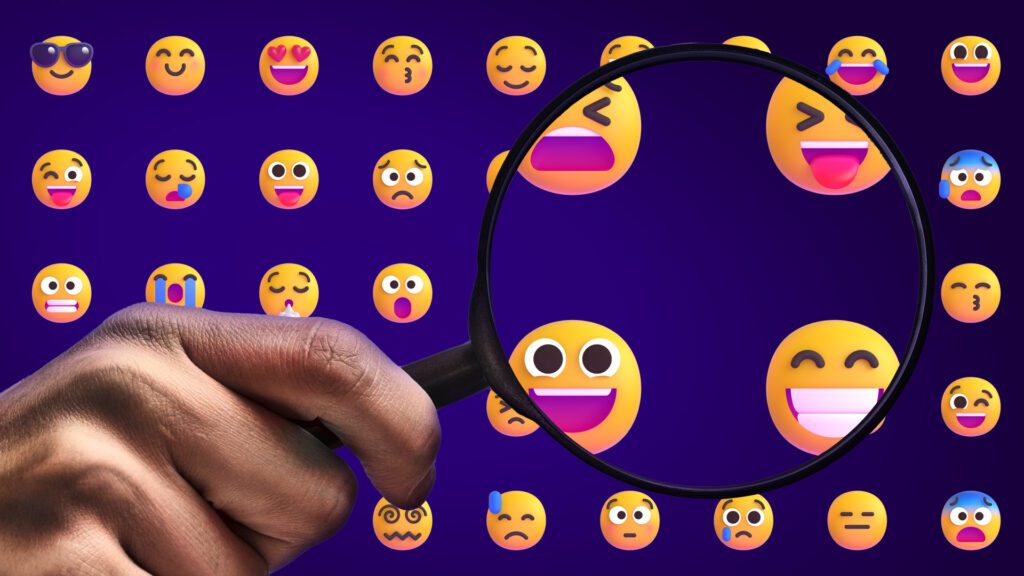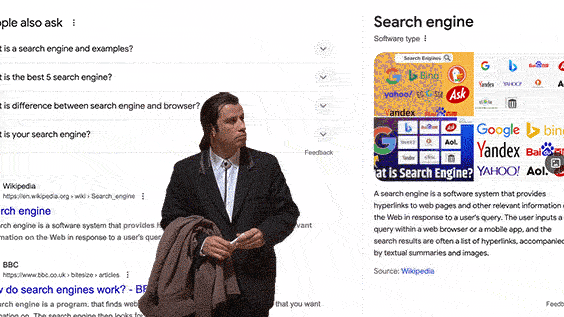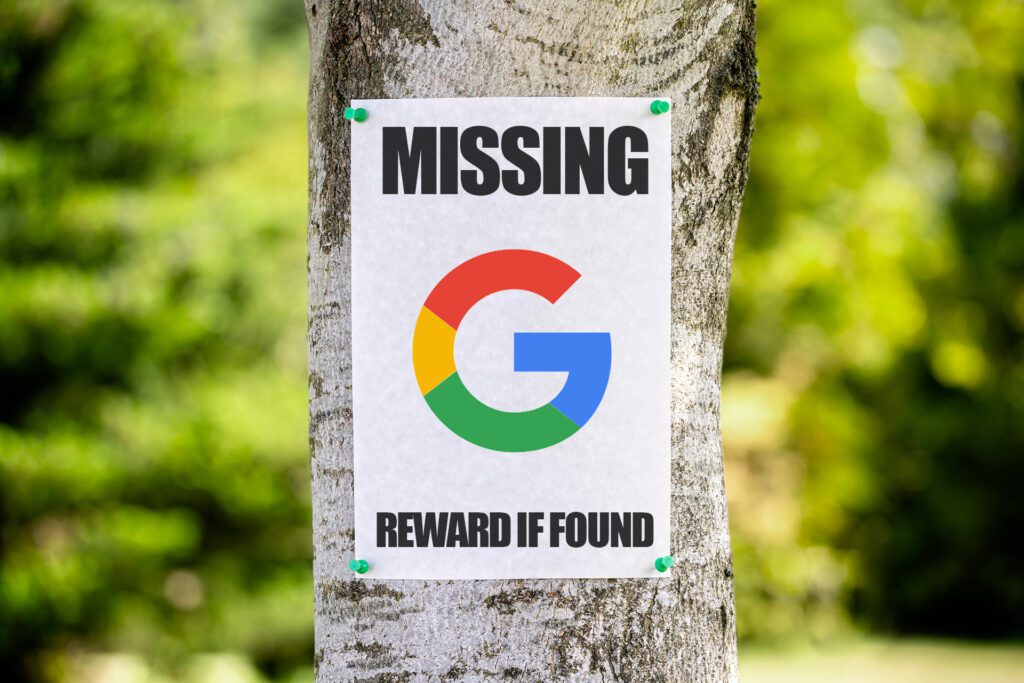Are you sick of hearing how the face of search is changing? No judgement here if you are. After all, we've gone from algorithm updates to combat spammy content, through the increasing importance of E-E-A-T and then the rise of AI overviews. It feels like the last three years alone have seen enough seismic shifts in search to last a generation.
And yet, changes still keep coming.
In the final 3 months of 2024, Google's market share dropped below 90% for the first time since 2015. While the titan of search engines might not be on the brink of collapse, it is hard to overstate the importance of this development.
Google has had a stranglehold on search for 25 years - for a quarter of a century it has stood strong against every new technological development and still continued to grow. Seeing that dominance shrink, even a little, is a shock. It also raises an intriguing question - what happened to those searchers? And - most importantly - how can your business keep speaking to them if they’re not on Google?

Social media platforms are probably the most popular places to pass the time on the internet. Most people will check at least one social media account on a daily basis. So it makes sense to direct your search queries to a site you're already visiting - meaning social media search bars are becoming the new default for many.
But is this the full story? And if social media is the future of search, does this mean the end of organic traffic? What are the best ways for your business to connect with this traffic? Is it even still possible to do?
Our job is to help you navigate your way through the tricky world of digital marketing, wherever that may take you - and that includes social media. So we’re taking this opportunity to answer all of the above questions, to help you ensure that the changing trends in search benefit your website’s visibility - not damage it.
And we’re going to start by looking at whether social media search engines really are the future.
As with so many things in digital marketing, the shift in search is complicated. There is no easy answer.
AI 'answer engines' like SearchGPT and Perplexity.AI are definitely absorbing some of that traffic but far from all of it. In fact, in 2024, it appears ChatGPT referrals only increased by 0.09% while Perplexity didn't increase more than 0.02%.
Other traditional search engines are also eating into Google's dominance. Bing now sits around 3.51% which is another modest increase (0.17%) (though one that is likely to grow). DuckDuckGo, EcoAsia and other smaller search engines have also seen slight growth.
But the heftiest chunk of Google’s former traffic seems to have gone to social media platforms.

As long ago as 2022, Google identified that 40% of 18-24 year olds use social media as their primary search engine. This trend continues to grow - by 2024, 78% of people were using social search for brand discovery and research.
This skew towards socials is strongest amongst Gen Alpha. They don't even default to 'Googling' as a verb anymore. Instead, they’ve fully embraced social platforms as an alternative to traditional search engines, and they’re a central part of their internet use.
So what is it about social media that's drawing everyone away from traditional search engines? It's actually a combination of reasons including:
Most people spend at least 2 hours a day on social media platforms. If you're on a platform already, carrying out your search there makes sense in terms of convenience - it's no wonder so many people do it.
This frequent use builds other conveniences too. For a start, people are more familiar with the platform, they know how to navigate it and what they expect to find. While the look of search results pages from Google keeps changing, social media apps stay far more steady with visible changes feeling minimal. It makes users feel more comfortable navigating their search results and makes them a more appealing prospect than trying to get their heads around new search features on the Google results pages.
Finally, all this time spent on social media networks helps their algorithms learn their audience. Searchers feel more 'understood' as they are shown results that are more likely to resonate with them. Purely because the platforms are able to learn so much about them based on their usage.

A large part of social media's appeal lies in its immediacy. Whereas a long-form blog post might take days or even weeks to put together, a quick TikTok or Facebook post can be made in minutes - leaving search results feeling far more up-to-date.
A shorter creation time also means more of them can be made, allowing them to be more adaptable and giving more results, more quickly, purely due to scale.
Authenticity is one of the biggest motivators amongst modern consumers. In fact, up to 73% of consumers globally are more likely to stay loyal to brands they feel are authentic.
It follows then, that these people are going to search somewhere that they believe gives a clearer picture of a brand's authenticity - and this means social media.
Even search engines realise this. Recently, it seems that Google's own ranking algorithm has started to prioritise user generated content in the search results, platforming posts from Reddit, LinkedIn and review sites like TripAdvisor, as they consider these results to be most useful to searchers. This further feeds the drive to social search - if these are the results you'll see, you may as well trust the platform itself to give more reliable results than a third-party like Google (even if that assumption isn't accurate).

One survey of Gen Z TikTok users showed that 74% used TikTok search (and 54% picked it over Google). And, of those surveyed, 69% picked out the easy-to-absorb video content as one of the main drivers for preferring TikTok.
When it comes to product discovery, especially for more superficial products, most searchers can find the value they need in a short reel delivered in 1 minute. When it's backed up by social proof (such as a product being viral on a particular platform) this can be seen as far more useful than a long involved blog post or even written review.
One factor you have to consider when thinking about the growth of social search is whether Google itself is actively driving users away. Are people simply seeking a new search engine because the old one doesn't deliver?
If we’re honest, this is probably part of the reason. For all the benefits social search brings, it's impossible to ignore that social media has been around for nearly two decades but only in the last few years has Google started to lose its grip on the search engine landscape.
Obviously the needs of searchers have changed. But Google's delivery system has also changed. The results pages are no longer as friendly to organic results as they once were - more and more search prominence is given to pay-per-click ads, while people seem to feel that the organic results just aren't as relevant or reliable as they once were.
While Google is constantly rolling out updates to address this, the introduction of AI overviews (intended to make search more friendly) has created more initial disruption and, for a lot of searchers, this isn't worth navigating anymore.

So if Google is potentially driving away users, and search engine optimisation (SEO) is the art of pleasing Google algorithms, does the rise of social search mean the end of SEO?
Not really.
Google stands strong on its preference for 'user first content'. It intends to reward websites that create content that delivers for searchers first - not their own crawlers. This means high-quality, easy-to-read, informative and helpful content should rank highly. It also means user-friendly websites that are straightforward to navigate, respond appropriately across different devices and deliver a great user experience earn higher spots too.
As long as it prioritises these sites, Google search is likely to deliver significant traffic to your business when you hit those markers. And optimising for Google will have a positive impact on your website, your conversions and your customer loyalty.
But it does mean that optimising for search engines alone may not deliver the same level of success for your business as it once did. You need to take a multi-channel approach, and optimise for social search engines too.
As we mentioned, the rules for SEO are pretty common sense for reaching your target audience and convincing them to commit to your business. This means, many of the principles are transferrable to social search too.
As with traditional SEO, optimising for social search means finding relevant keywords that meet the intent and interests of your users and then including them in your posts and your bio.
One difference between social search and traditional SEO is hashtags. These play a massive role in how people navigate social media - and how social media algorithms work. Make sure to find relevant and viral ones and use them effectively to be included in the searches your potential customers make.

We mentioned one of the draws to social search is that it provides real-time information, and you need to provide that too. Make sure to post frequently, with fresh relevant content so that you never slip out of step.
(Although you can always foreground your best content by pinning it so it stays visible for longer.)
In the fight to build trust and recognition with your audience, you need to make sure you're identifiable across all platforms. From logos and colours to tone of voice, and even the subjects you post about, you need every platform to align.
As with your website design you need to make sure that your social feeds are accessible. Add (edited!) subtitles to your videos for audiences who are of hearing, and alt text for those who use screen readers.
Not only is this an important part of keeping the online spaces usable for everyone, you'll be making sure the widest possible audience can enjoy your content - and buy from your business.
Track the impact your social media traffic is having by using UTM codes. Added to URLs, these tags will help you track traffic sources and see how much of it is converting. A vital part of shaping your social strategy is seeing what's connecting with your target audience.
As with all optimisation, the key to success is constant evolution. It's not enough to set your strategy in stone and stick to the same tactics for years - as this post shows, user behaviour and expectations are always evolving, and your marketing strategies need to change with them.
Regularly review what is driving traffic, and what is driving conversions, and turn towards this. Whether that's a particular platform, format or subject, if you know what is working (or not working!) you can make sure your socials are always serving your business.
Search behaviour is changing. But the thing is, it has never been static. Using social media channels as search engines is the latest trend but one that appears to be sticking, and you need to include it in your digital marketing arsenal.
Susan Giles is a skilled SEO copywriter and creative content writer with a passion for storytelling and a talent for turning complex ideas into engaging, accessible content.
With a background in freelance writing and creative writing tutoring, she brings both technical know-how and a love of language to everything she creates. Whether polishing existing copy or crafting fresh, optimised content from scratch, Susan knows how to make words work harder. Outside of writing, she’s usually buried in a good book.
Sign up to The Digital Maze Newsletter